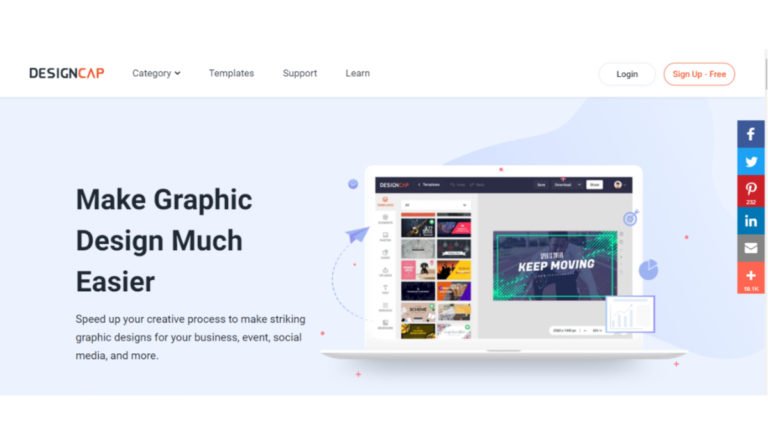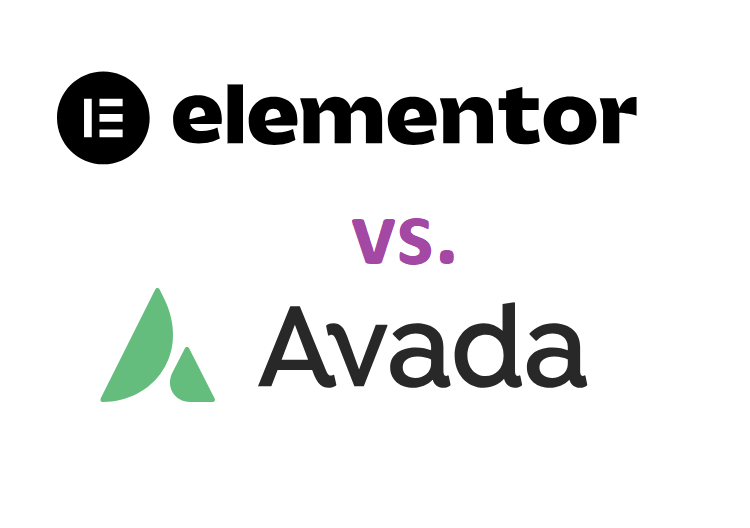AI appointment setters are advanced software applications that harness the power of artificial intelligence to automate the process of scheduling appointments. By leveraging sophisticated algorithms and natural language processing (NLP) capabilities, AI appointment setters can interact with users, understand their scheduling preferences, and coordinate with calendars to book appointments automatically.
In recent years, there has been a significant rise in the adoption of AI appointment setters across various industries. Businesses, healthcare providers, service professionals, and individuals alike are turning to AI-driven solutions to streamline their appointment booking processes. This increasing adoption can be attributed to the numerous benefits that AI appointment setters offer, including time savings, enhanced efficiency, and improved customer experience.
By automating repetitive and time-consuming tasks associated with appointment scheduling, AI appointment setters free up valuable resources and allow businesses to focus on more strategic initiatives. They eliminate the need for manual coordination, reduce the risk of scheduling errors, and ensure that appointments are booked promptly and accurately.
Furthermore, AI appointment setters are capable of handling a wide range of scheduling scenarios and preferences, making them versatile tools for businesses of all sizes and industries. Whether scheduling meetings, consultations, or service appointments, AI appointment setters can adapt to various scheduling requirements and seamlessly integrate with existing calendar systems.
Overall, AI appointment setters play a crucial role in streamlining appointment booking processes and improving operational efficiency. As the demand for automated scheduling solutions continues to grow, AI appointment setters are poised to become indispensable tools for businesses and professionals seeking to optimize their scheduling workflows and enhance customer satisfaction.
Table of Contents
ToggleHow AI Appointment Setters Work?
AI appointment setters operate on a sophisticated framework of technologies, primarily leveraging natural language processing (NLP) and machine learning algorithms to automate the scheduling process. Here’s a breakdown of how AI appointment setters function:
Natural Language Processing (NLP)
NLP is a branch of artificial intelligence that enables computers to understand and interpret human language. AI appointment setters utilize NLP to comprehend user inquiries, requests, and preferences related to appointment scheduling. By analyzing text inputs or spoken commands, NLP algorithms extract relevant information such as appointment dates, times, locations, and meeting purposes.
Machine Learning Algorithms
Machine learning algorithms form the backbone of AI appointment setters, enabling them to learn from past interactions and improve their scheduling capabilities over time. These algorithms analyze patterns in user behavior and scheduling preferences to make informed decisions when suggesting or booking appointments. Through continuous training and optimization, AI appointment setters become more accurate and efficient in handling scheduling tasks.
User Interaction
AI appointment setters engage with users through various communication channels, including text-based interfaces, voice assistants, chatbots, and email. Users can interact with AI appointment setters by providing input in natural language, such as requesting an appointment, specifying preferred dates and times, or asking questions about availability. The AI system processes these inputs using NLP algorithms to understand the user’s intent and extract relevant details.
Understanding Scheduling Preferences
AI appointment setters are designed to adapt to individual scheduling preferences and requirements. They analyze user input to determine scheduling constraints, preferences for specific days or times, preferred meeting locations, and any other relevant factors. By understanding these preferences, AI appointment setters can suggest available time slots that align with the user’s scheduling needs and preferences.
Calendar Integration
Once the user’s scheduling preferences are understood, AI appointment setters coordinate with calendar systems to find suitable appointment slots and schedule appointments automatically. They interact with the user’s calendar, whether it’s Google Calendar, Outlook, or another platform, to check for existing appointments, identify available time slots, and reserve the chosen time slot for the appointment. Calendar integration ensures that appointments are seamlessly added to the user’s schedule without conflicts.
AI appointment setters leverage NLP and machine learning algorithms to understand user requests, interpret scheduling preferences, and coordinate with calendar systems to automate the appointment scheduling process. By harnessing these advanced technologies, AI appointment setters streamline scheduling workflows, improve efficiency, and enhance the overall user experience.
Also Read: Best AI Video Filters in 2024
Benefits of AI Appointment Setters
AI appointment setters offer a wide range of advantages for both businesses and individuals, revolutionizing the way appointments are scheduled and managed. Here are some key benefits of using AI appointment setters:
Time Savings
AI appointment setters automate the appointment scheduling process, eliminating the need for manual coordination and back-and-forth communication. This saves valuable time for both businesses and individuals, allowing them to focus on more important tasks and activities.
Reduced Administrative Workload
By automating repetitive scheduling tasks, AI appointment setters reduce the administrative burden on businesses and individuals. They handle appointment requests, confirmations, and reminders, freeing up administrative staff to focus on higher-value tasks and strategic initiatives.
Improved Scheduling Accuracy
AI appointment setters leverage advanced algorithms to analyze scheduling preferences, availability, and constraints with precision. This ensures that appointments are scheduled accurately and efficiently, minimizing scheduling errors and conflicts.
Enhanced Customer Satisfaction
AI appointment setters provide a seamless and convenient scheduling experience for customers and clients. They offer 24/7 availability, allowing users to book appointments at their convenience without the need to wait for business hours. Additionally, AI appointment setters can send automated reminders and confirmations, reducing no-shows and improving overall customer satisfaction.
Optimized Resource Utilization
With AI appointment setters, businesses can optimize resource utilization by efficiently allocating appointment slots based on availability and capacity. This helps businesses maximize their productivity and revenue potential by ensuring that resources are utilized effectively.
Personalized Scheduling Experience
AI appointment setters can personalize the scheduling experience for users by taking into account individual preferences, such as preferred appointment times, locations, and service providers. This tailored approach enhances the user experience and increases engagement with the scheduling process.
Scalability and Flexibility
AI appointment setters are highly scalable and adaptable to changing business needs and volumes. They can handle a large volume of appointment requests simultaneously and scale up or down as needed to accommodate fluctuations in demand.
Overall, AI appointment setters offer numerous benefits for businesses and individuals alike, including time savings, reduced administrative workload, improved scheduling accuracy, enhanced customer satisfaction, optimized resource utilization, personalized scheduling experiences, and scalability. By harnessing the power of artificial intelligence, AI appointment setters transform the appointment scheduling process, making it more efficient, convenient, and streamlined for all parties involved.
Also Read: 5 Best WooCommerce Booking and Appointment Plugins in 2024
Key Features of AI Appointment Setters
AI appointment setters come equipped with a variety of features and functionalities designed to streamline the appointment scheduling process and enhance user experience. Here are some key features offered by AI appointment setters:
Intelligent Scheduling
AI appointment setters utilize advanced algorithms to intelligently schedule appointments based on user preferences, availability, and constraints. They analyze scheduling patterns and optimize appointment slots to minimize gaps and maximize efficiency.
Calendar Synchronization
AI appointment setters seamlessly synchronize with users’ calendars, such as Google Calendar, Outlook, or Apple Calendar. This ensures that appointments are automatically added to the user’s schedule and prevents double bookings or conflicts with existing appointments.
Customizable Appointment Settings
AI appointment setters offer customizable appointment settings to accommodate varying scheduling requirements and preferences. Users can specify appointment durations, buffer times between appointments, preferred locations, and preferred service providers.
Automated Reminders
AI appointment setters send automated reminders to users to reduce no-shows and ensure appointment attendance. Reminders can be sent via email, SMS, or in-app notifications, and they typically include details such as appointment date, time, location, and any special instructions.
Multi-channel Communication
AI appointment setters support multi-channel communication, allowing users to schedule appointments via various channels such as websites, mobile apps, chatbots, and virtual assistants. This provides users with flexibility and convenience in booking appointments using their preferred communication channel.
Real-time Availability Updates
AI appointment setters provide real-time updates on appointment availability, ensuring that users have access to the latest information when scheduling appointments. This prevents users from booking unavailable time slots and improves overall scheduling accuracy.
Integration with CRM Systems
AI appointment setters integrate seamlessly with customer relationship management (CRM) systems, allowing businesses to manage customer interactions and appointment data in a centralized platform. This integration enables businesses to track appointment history, customer preferences, and other relevant information for improved customer relationship management.
Analytics and Reporting
AI appointment setters offer analytics and reporting features to track appointment metrics such as booking rates, no-show rates, and appointment duration. These insights help businesses optimize their scheduling processes and identify areas for improvement.
Overall, the key features of AI appointment setters enable businesses and individuals to streamline appointment scheduling, improve efficiency, and enhance the overall customer experience. By leveraging intelligent scheduling algorithms, calendar synchronization, customizable settings, automated reminders, and other advanced functionalities, AI appointment setters revolutionize the way appointments are booked and managed.
Integration with Existing Systems
AI appointment setters are designed to seamlessly integrate with existing calendar and scheduling systems, as well as other business tools, to ensure smooth operation and compatibility with users’ existing workflows. Here’s how AI appointment setters typically integrate with various systems
Also Read: 8 Best WordPress Themes for Auto Repair Services in 2024
Compatibility with Popular Calendar Platforms
AI appointment setters support integration with widely used calendar platforms such as Google Calendar, Outlook, and Apple Calendar. This allows users to synchronize their appointments seamlessly across multiple devices and platforms, ensuring consistency and accessibility.
Two-way Synchronization
AI appointment setters offer two-way synchronization with calendar platforms, enabling bidirectional communication between the AI system and the user’s calendar. This means that appointments booked through the AI appointment setter are automatically added to the user’s calendar, and any changes made to appointments in the calendar are reflected in the AI system.
Integration with CRM Systems
AI appointment setters integrate with customer relationship management (CRM) systems to facilitate comprehensive customer management and tracking. Integration with CRM systems allows businesses to store appointment data alongside other customer information, such as contact details, communication history, and purchase history, providing a holistic view of customer interactions.
Booking Platform Integration
AI appointment setters can also integrate with booking platforms and appointment scheduling software commonly used by businesses. This integration enables seamless communication between the AI appointment setter and the booking platform, ensuring that appointments booked through the AI system are accurately recorded and managed within the organization’s scheduling infrastructure.
API Access and Customization
Many AI appointment setters offer API access and customization options, allowing businesses to tailor the integration to their specific needs and workflows. API access enables developers to build custom integrations with other systems and automate data transfer between different platforms.
Security and Data Privacy
Integration with existing systems includes robust security measures to protect sensitive appointment and customer data. AI appointment setters adhere to industry-standard security protocols and compliance regulations to ensure the confidentiality and integrity of user information.
Overall, integration with existing systems ensures that AI appointment setters seamlessly fit into users’ existing workflows and provide a unified experience across different platforms and tools. By synchronizing with popular calendar platforms, integrating with CRM systems, and supporting customization options, AI appointment setters enhance efficiency and productivity in managing appointments and customer interactions.
Challenges and Limitations
While It offer numerous benefits, they also come with certain challenges and limitations that users should be aware of. Here are some potential challenges associated with AI appointment setters
Also Read: The Ultimate Guide to WooCommerce Bookings Plugins for Seamless Appointment Management
Language Understanding Limitations
One common challenge faced by AI appointment setters is their ability to accurately understand and interpret natural language inputs from users. Navigating nuances, context, and variations in language can sometimes result in misinterpretations or errors in scheduling requests.
Scheduling Conflicts
AI appointment setters may encounter scheduling conflicts, especially in scenarios where multiple users are attempting to book appointments simultaneously or when there are limited available time slots. Scheduling conflicts can lead to double bookings, missed appointments, or dissatisfaction among users.
Technical Limitations
AI appointment setters rely on underlying technology such as natural language processing (NLP) and machine learning algorithms, which may have limitations in terms of accuracy and performance. Technical issues such as system downtime, slow response times, or errors in processing can impact the reliability of it.
User Adoption and Trust
Some users may be hesitant to fully trust AI appointment setters, particularly in sensitive or high-stakes appointment scenarios such as medical consultations or financial appointments. Building user trust and encouraging adoption of it may require education, demonstration of reliability, and transparent communication about how the technology works.
Privacy and Data Security Concerns
It handle sensitive information such as personal schedules, contact details, and appointment preferences. Ensuring robust data privacy and security measures to protect user information is crucial to maintaining trust and compliance with data protection regulations.
Also Read: Best AI Tools For Digital Marketing In 2024
Recommendations for Overcoming Challenges
Continuous Improvement and Training
It can benefit from continuous improvement and training to enhance their language understanding capabilities and reduce errors in scheduling. Regular updates and feedback loops help AI systems learn from past interactions and improve their performance over time.
Clear Communication and Expectations
Clear communication with users about the capabilities and limitations of it can help manage expectations and reduce frustration. Providing guidance on how to interact effectively with the system and setting realistic expectations for scheduling outcomes can improve user satisfaction.
Conflict Resolution Mechanisms
Implementing robust conflict resolution mechanisms within it can help mitigate scheduling conflicts and minimize disruptions. This may include automated conflict detection algorithms, alternative appointment suggestions, or manual intervention by human administrators.
User Education and Training
Educating users about the benefits and proper use of it can increase adoption and confidence in the technology. Providing user training resources, tutorials, and FAQs can help users navigate the system effectively and address any concerns or questions they may have.
Data Privacy and Security Measures
Implementing stringent data privacy and security measures, such as encryption, access controls, and compliance with regulatory standards (e.g., GDPR, HIPAA), is essential to protect user data and maintain trust in it. Regular security audits and transparency about data handling practices can reassure users of the system’s reliability and integrity.
Overall, addressing challenges and limitations associated with AI appointment setters requires a proactive approach, including ongoing refinement of technology, clear communication with users, effective conflict resolution mechanisms, user education, and robust data privacy and security measures. By addressing these challenges, organizations can optimize the use of it and maximize their benefits in streamlining appointment scheduling processes.
Future Trends in AI Appointment Setting
As AI technology continues to advance, the future of AI appointment setting holds exciting possibilities and opportunities for innovation. Here are some emerging trends and developments shaping the future of AI appointment setting
Advanced Natural Language Processing (NLP) Capabilities
Future AI appointment setters are likely to feature advanced NLP capabilities that enable them to better understand and interpret natural language inputs from users. Improved language understanding algorithms will enhance the accuracy and efficiency of scheduling interactions, allowing users to communicate with the system more naturally and effectively.
Personalized Scheduling Algorithms
AI appointment setters of the future may incorporate personalized scheduling algorithms that tailor appointment recommendations and availability based on individual preferences, behavior patterns, and historical data. These algorithms will optimize scheduling decisions to match users’ unique needs and preferences, resulting in a more personalized and efficient scheduling experience.
Integration with Virtual Assistants
Integration with virtual assistants such as voice-activated smart speakers and chatbots will become increasingly common in AI appointment setting technology. Users will be able to schedule appointments using voice commands or text-based interactions with virtual assistants, making the scheduling process even more intuitive and seamless.
Predictive Scheduling and Smart Recommendations
Future AI appointment setters may leverage predictive analytics and machine learning algorithms to anticipate users’ scheduling needs and proactively suggest appointments based on past behavior, upcoming events, and contextual factors. Smart recommendations will help users discover relevant appointments and opportunities, further streamlining the scheduling process.
Multi-channel Scheduling Interfaces
It will offer multi-channel scheduling interfaces that allow users to book appointments through a variety of platforms and devices, including websites, mobile apps, social media platforms, and messaging apps. This omnichannel approach will provide users with flexibility and convenience in scheduling appointments using their preferred communication channel.
Integration with Wearable Devices
Integration with wearable devices such as smartwatches and fitness trackers will enable AI appointment setters to leverage real-time data on users’ activity levels, location, and health metrics to optimize scheduling decisions. By incorporating wearable data, AI appointment setters can schedule appointments at optimal times and locations based on users’ current context and preferences.
Enhanced Security and Privacy Measures
Future AI appointment setters will prioritize robust security and privacy measures to protect user data and ensure compliance with data protection regulations. Enhanced encryption, authentication mechanisms, and privacy controls will safeguard sensitive appointment information and maintain user trust in the system.
Overall, the future of AI appointment setting is characterized by advancements in natural language processing, personalized scheduling algorithms, integration with virtual assistants, predictive analytics, multi-channel interfaces, integration with wearable devices, and enhanced security measures. These developments will transform the scheduling process, making it more intuitive, personalized, and efficient for users while driving productivity and efficiency in business operations.
Top AI Appointment Setters
1.Calendly
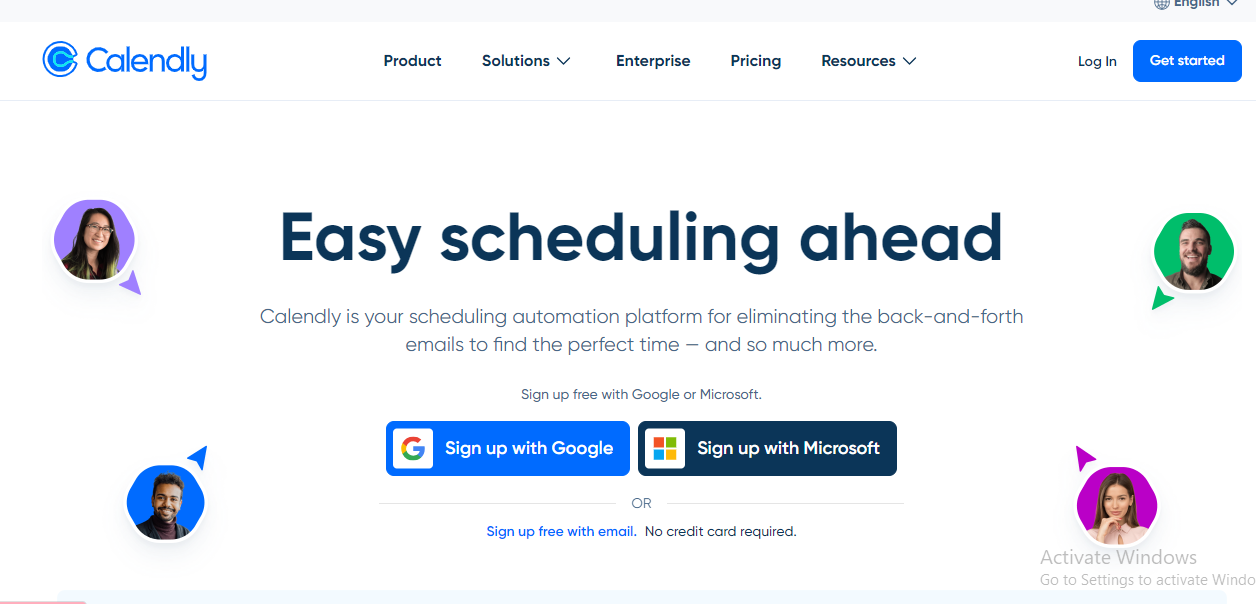
Calendly is an AI-driven appointment scheduling tool that allows users to set their availability and share a personalized scheduling link with clients and colleagues. It streamlines the booking process by eliminating the need for manual coordination.
Benefits: Calendly offers benefits such as increased booking efficiency, improved customer satisfaction, and reduced no-shows. It syncs with users’ calendars in real-time, preventing double bookings and scheduling conflicts.
Key Features: Key features of Calendly include customizable availability settings, automated reminders and follow-ups, integration with popular calendar platforms and video conferencing tools, and reporting and analytics to track scheduling metrics.
Pricing: Calendly offers a free plan with basic scheduling features, as well as premium plans starting at $8 per user per month, billed annually, for additional customization and advanced features.
2.Doodle

Doodle is an AI-powered scheduling tool that simplifies the process of finding the best time for group meetings and appointments. It allows users to create polls with potential meeting times and invite participants to vote on their availability.
Benefits: Doodle offers benefits such as simplified group scheduling, increased meeting attendance, and improved time management. It eliminates the need for endless email chains and ensures that meetings are scheduled at times convenient for all participants.
Key Features: Key features of Doodle include customizable meeting polls with multiple date and time options, integration with calendar platforms such as Google Calendar and Outlook, reminders and notifications for participants, and reporting and analytics to track scheduling trends.
Pricing: Doodle offers a free basic plan with limited features, as well as premium plans starting at $6.95 per user per month for additional customization and advanced scheduling options.
Also Read: Best AI Tools For Personal Assistant: Revolutionizing Productivity In Everyday Life
3.Cirrus Insight
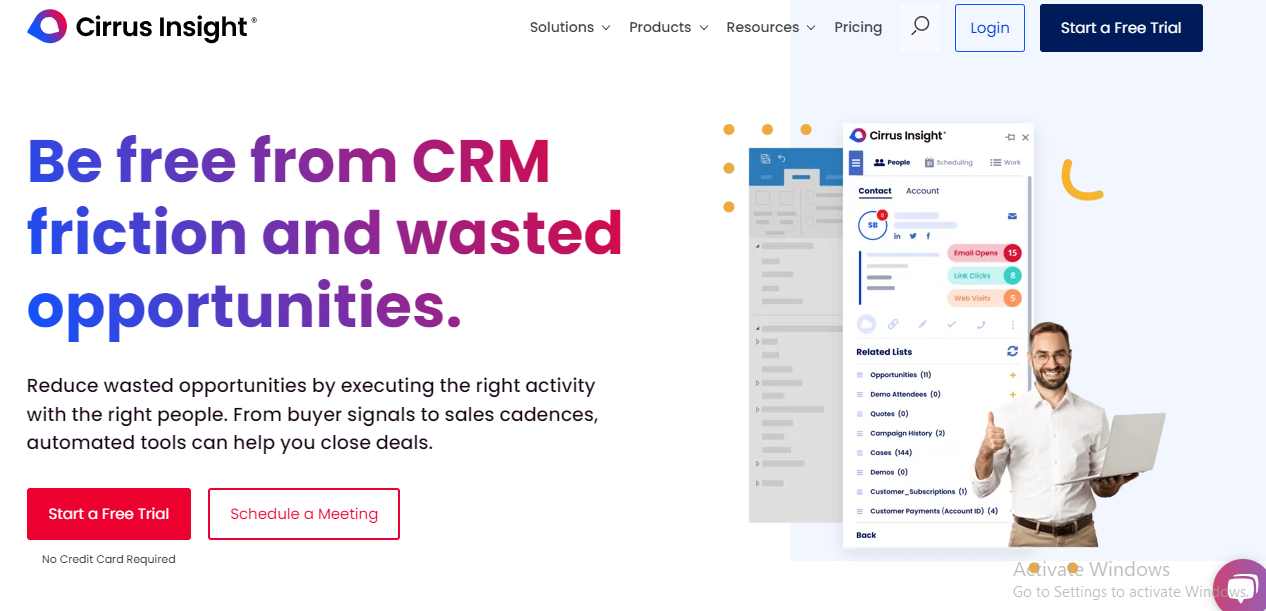
Cirrus Insight is a simple AI appointment scheduling tool that integrates directly with users’ email accounts to facilitate meeting scheduling. It allows users to propose meeting times via email and automatically generates calendar invites once a time is agreed upon.
Benefits: Cirrus Insight offers benefits such as streamlined scheduling, improved communication, and increased productivity. It eliminates the need for manual calendar management and ensures that meetings are scheduled efficiently.
Key Features: Key features of Cirrus Insight include seamless integration with email platforms such as Gmail and Outlook, customizable meeting templates and availability settings, automated calendar syncing and updates, and real-time availability indicators.
Pricing: Cirrus Insight offers a free basic plan with limited features, as well as premium plans starting at $10 per user per month for additional customization and advanced scheduling options.
Also Read: Best AI Tools That Are Worth Your Time
4.Setmore
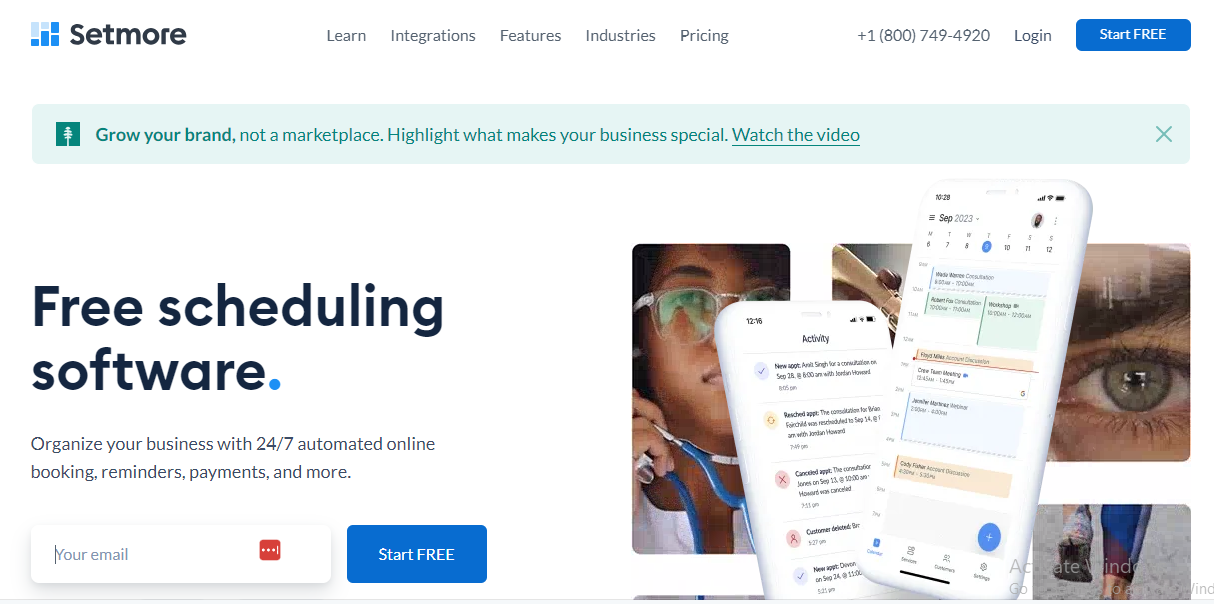
Setmore is an AI-powered appointment scheduling and booking software designed for businesses in various industries. It allows users to manage appointments, bookings, and client information from a centralized platform.
Benefits: Setmore offers benefits such as improved appointment management, enhanced customer experience, and increased booking efficiency. It provides users with tools to automate scheduling, reduce no-shows, and streamline administrative tasks.
Key Features: Key features of Setmore include customizable booking pages and appointment types, automated reminders and confirmations, integration with popular calendar platforms and payment gateways, and reporting and analytics to track appointment metrics.
Pricing: Setmore offers a free basic plan with limited features, as well as premium plans starting at $25 per user per month for additional customization and advanced scheduling options.

Conclusion
In conclusion, AI appointment setters represent a significant advancement in modern scheduling practices, offering businesses and individuals a powerful tool to automate and streamline the appointment booking process. Throughout this blog, we’ve explored the definition and working principles of it, as well as their numerous benefits, including time savings, reduced administrative workload, improved scheduling accuracy, and enhanced customer satisfaction.
Furthermore, we’ve discussed key features, integration capabilities, and potential challenges associated with it, along with recommendations for optimizing their use. Looking ahead, the future of AI appointment setting holds promising developments, including advanced natural language processing, personalized scheduling algorithms, integration with virtual assistants, and enhanced security measures.
As we embrace these advancements, it’s essential for businesses and individuals to recognize the transformative potential of AI appointment setters and consider implementing them to streamline their appointment booking processes and improve efficiency. By leveraging AI technology, organizations can enhance productivity, deliver better customer experiences, and stay ahead in today’s fast-paced world.
We encourage readers to explore it further, evaluate their suitability for their specific needs, and embrace innovation to unlock the full potential of modern scheduling practices. With AI appointment setters, scheduling appointments has never been easier or more efficient, paving the way for greater productivity and success in all endeavors.
Interesting Reads:
5 Best WooCommerce Questions and Answers Plugins
Visual SEO: Optimizing Images and Videos for Search
The Ultimate Guide to Instagram Video Length: Posts, Stories, and Reels in 2024




